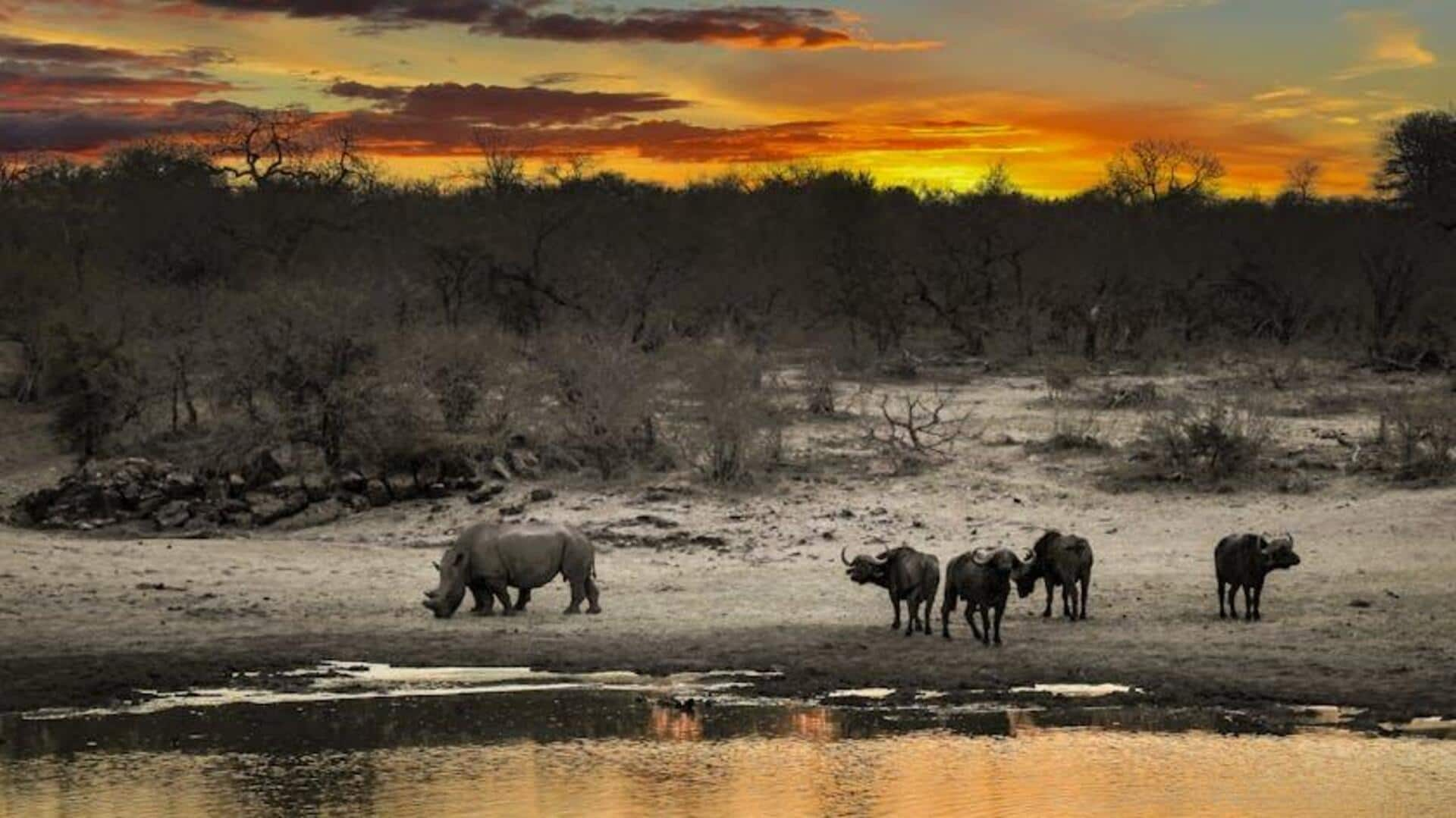
How to plan an eco-friendly safari
What's the story
Ethical safari tours are the latest trend for eco-conscious travelers looking to experience the magic of Africa's wilderness without leaving a harmful footprint. This article offers a comprehensive guide to conducting green safari tours, highlighting sustainable practices that not only preserve wildlife but also empower local communities.
Lodging
Choose sustainable lodging
When planning your sustainable safari adventure, choosing accommodations that are committed to eco-friendly practices is key. Opt for lodges or camps that utilize solar energy, employ water conservation strategies, and maintain responsible waste management systems. Plus, many eco-conscious accommodations actively support wildlife conservation initiatives and local community projects. This means you can rest easy knowing your stay is contributing to both environmental stewardship and social upliftment.
Transportation
Minimize vehicle emissions
Safari vehicles may be necessary for exploring Africa's expansive landscapes, but they're also major contributors to pollution. Choose tour operators with low emission standards or opt for electric safari vehicles when possible. By limiting the number of game drives and spending more time at sightings, you can also help minimize fuel usage and emissions.
Conservation
Support local conservation efforts
By choosing to join conservation-driven safaris, you can directly support wildlife protection efforts. Opt for tour operators who donate a percentage of their earnings to local conservation initiatives or those who provide educational programs emphasizing the significance of maintaining natural habitats. Such experiences not only enrich your safari adventure but also contribute to the sustainability of species.
Waste management
Reduce plastic waste
Plastic pollution is becoming an increasingly pervasive issue in natural environments worldwide, and Africa's wilderness areas are no exception. Tourists can help mitigate this impact by bringing along reusable water bottles, avoiding single-use plastics, and ensuring waste is disposed of responsibly. Certain tour operators even offer refillable water containers to their guests, in a bid to promote this positive habit.
Community engagement
Engage with local communities responsibly
Interacting with local communities on your safari can enhance your trip while contributing to sustainable development. Choose tours that incorporate visits to community projects or cultural experiences facilitated by local guides. By buying crafts directly from artisans and adhering to cultural norms, tourists can make a positive impact on the communities they visit.